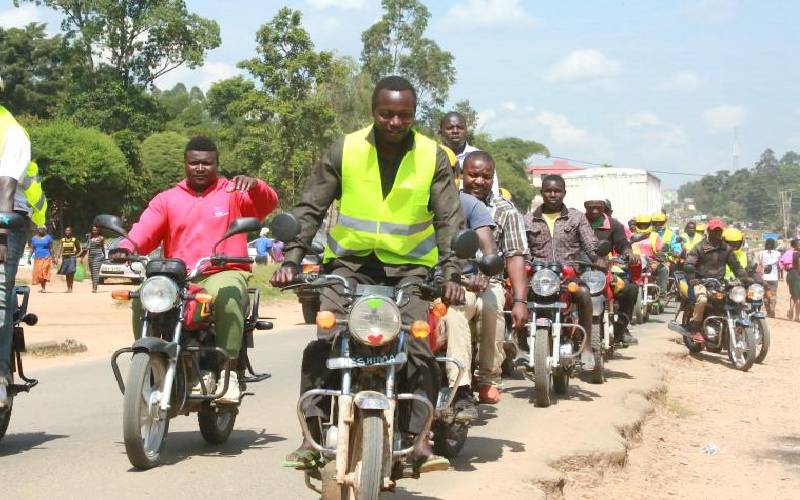×
The Standard e-Paper
Kenya’s Boldest Voice

The boda boda sub-sector has grown in leaps and bounds for over a decade now, providing employment opportunities, a source of livelihood and economic empowerment, especially for the youth.